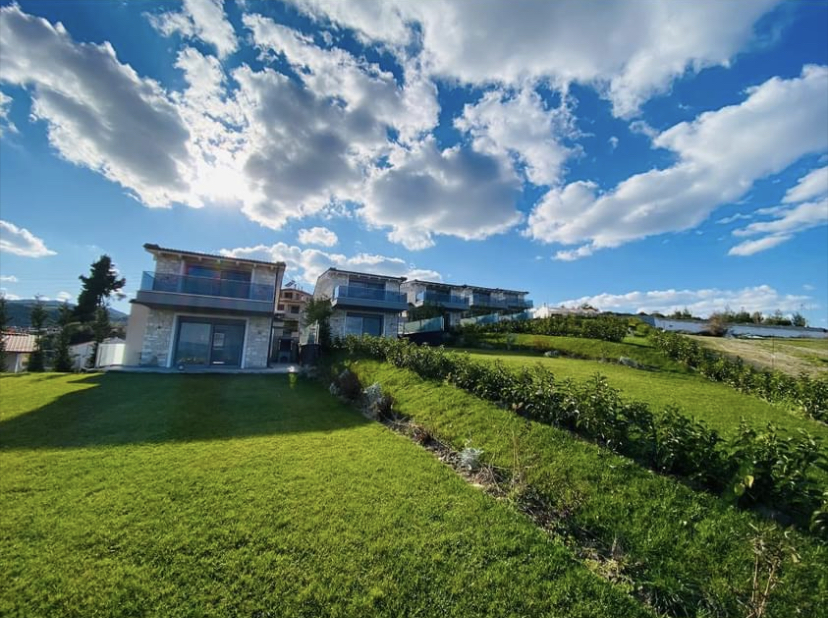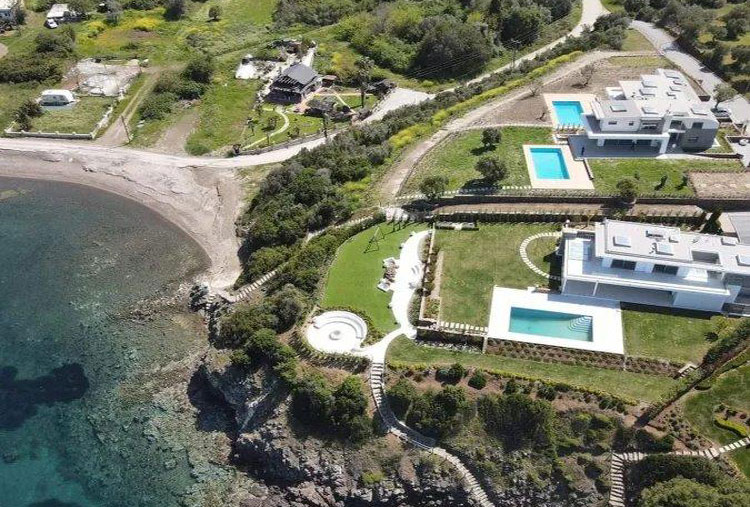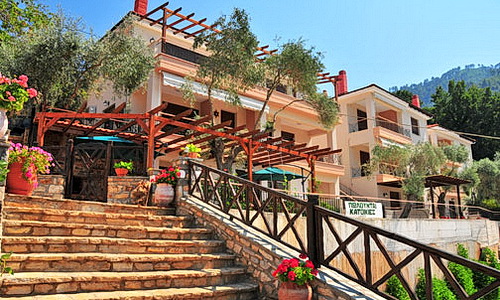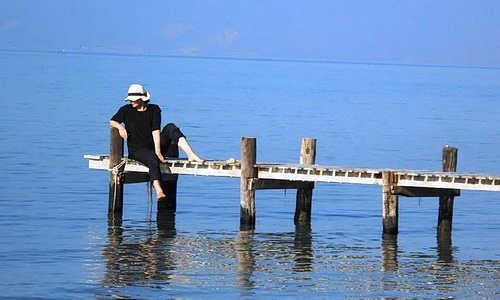Finding and purchasing a property in Greece
Where to buy? Most expats buying in Greece radiate towards the country’s beautiful islands and villages. Popular spots include Corfu, Rhodes and Crete. If you are looking to make a more permanent move and job opportunities are important to you, Athens and Thessaloniki are the most popular choices.
Finding a property in Greece
Step 1
Create a brief Once you have spent time working out exactly what you want and how you are going to afford it, you will be able to create a brief that will help you (and your agent) find the property you want, in the location you want it, and at the price you want it for. The process of buying overseas property can be lengthy. This means it is easy to get pushed off course and end up forgetting your original goals. Creating a brief will keep you focused and will help your agent to fully understand all of your needs. To create your own brief simply return to the ‘Getting started’ section and update your answers to the perfect property questions, taking into account everything you now know. Make sure you outline a budget, indicate how you’re going to pay for the property (cash, or a combination of cash and mortgage), and when you’d like to buy. Be as detailed as possible.
Step 2
Find the right agent Finding a good agent is key to a successful property purchase. When making your choice, you need to choose an agent who sells the type of property that you are after, that they are registered, reliable and most importantly, that they listen to and understand your needs.
A good agent:
1. Operates legally and ethically.
2. Is proactive and offers a good service. If you have a problem or a question, you want someone who takes action to get it resolved, or to provide an answer. Determining up front if an agent is helpful will give you a better chance of success. Before you visit Greece, send them your brief or an email asking a question to see how long they take to get back to you, and how enthusiastic they are about helping you.
3. Has been operating for a while and has experience of working with EU, NON-EU buyers you want an agent who knows the area, understands the market, and knows the politics involved to make things happen. Having experience with EU, NON-EU buyers is invaluable, as they will have an understanding of the kinds of issues that arise.
4. Stays with you until the end A good agent doesn’t up and leave the minute the final contract is signed. They offer to help you further in terms of opening a bank account, finding a builder, a doctor, schools - whatever you need. You can find out if your prospective agent does this by asking for past-buyer feedback.
The Viewing Trip
If you are not yet living in Greece, and you have the time and funds available, we recommend that you visit on a viewing trip. A trip of this nature will allow you visit the different towns, islands and villages in order to determine where you want to buy your new home or investment property. Where possible, plan a trip that lasts between four to seven days, so that as well as having time to view properties, you will have time for some leisurely exploration, to try out the local amenities and to soak up the atmosphere. It’s important to get a feel of what everyday life would be like in Greece before you commit. It’s for this reason that many potential buyers opt to rent an apartment or villa in their target area, so that they can see what it’s like at different times of day and can meet some of their future neighbours. Before booking, check national holidays to avoid everything being closed when you arrive. We have compiled a viewing trip property analysis worksheet that you can use as a guide for making your notes on every aspect of the property and location, from its general appearance to its proximity to local amenities. Make sure that you take lots of photographs of the property to correspond with your notes to look back on later.
If you happen to find a property that you like, make sure you visit at night. You want to make sure that there isn’t a nightclub next door, or that it isn’t directly under the flight path for a nearby airport! Also, it may be worth considering a viewing trip during off-season. Not only will you be able to gauge just how cold it gets but you may also be able to negotiate a lower sale price, as demand is lower in off-season. The main thing to remember about your viewing trip is that there are no rules! It’s not unknown for prospective buyers to take a very leisurely trip to an area, exploring and making notes on different villages visited, but not actually viewing property. On your return home, you can reflect on what you have seen and fine tune your criteria for a second trip dedicated to just viewing properties. Others see something, fall in love, and the rest is history.
The buying process
Step 1:
Secure a mortgage If you are planning on buying with a mortgage, it’s always advisable to have one approved before you start searching for property. That way, you avoid wasting your time and that of your agent until it is a certainty that you will have the finances to make the purchase.
Step 2:
Initial purchase agreement Once an offer is made, a preliminary contract is drawn up outlining the buyer’s agreement to buy and the seller’s agreement to sell. This will include the price, the names of the parties involved, a description of the property, all agreed conditions and the payment terms. Make sure that you employ the services of an independent lawyer to guide you through this process, and to make sure that you fully understand all of the terms of this binding contract.
Step 3:
Pay the deposit Once the preliminary contract is signed, the deposit will be paid. If the seller decides not to sell after this point, the deposit will be returned to you. If you decide not to buy, you will lose the deposit.
Step 4:
Title searches Next, your lawyer will get to work performing extensive checks on the title of the property. This is an important part of the process as it ensures that there are no restrictions on the property, that building regulations have been complied with (and you aren’t likely to be fined for work that has been done on the property without the necessary permissions, i.e. swimming pools, extensions). Your lawyer will also check that there aren’t any outstanding debts on the property that you would inherit as the new owner.
Step 5:
Sale contract and transfer of ownership Greek property cannot be transferred between owners without a notary being present. The notary is a neutral party employed by the government whose responsibility it is to certify Greek legal documents, ensure all legal criteria are met, and to collect the relevant taxes. The notary will prepare a sale contract, which must be signed by the buyer and the seller, in the presence of the notary and each party’s lawyer. If necessary, you can arrange to give someone else the Power of Attorney to sign the sale contract for you, this will usually be your lawyer.
Step 6:
Completion On the day of the signing, the contents of the contract will be read aloud, and as long as there are no objections to the outlined terms, both parties will sign. Next, property transfer tax and the balance of the purchase price will be handed over and the notary will register the transfer of the property with the Greek Land Registry. The property will then be yours! The Golden Rules Before you embark on your viewing trip, we recommend getting the following resources in place.
- A good agent
- An independent solicitor
- A bit of luck
Guide to Buying Real Estate in Greece: The Complete Handbook:
- Part 1: Get started
- Part 2: Money matters
- Part 3: Finding and purchasing a property in Greece
- Part 4: Legal matters and life permission
- Part 5: Information for five years residence permission
- Part 6: Managing your property
- Part 7: Expenses Calculator
- A brief guide to Residence Permits for real estate owners in Greece (pdf)

















































































